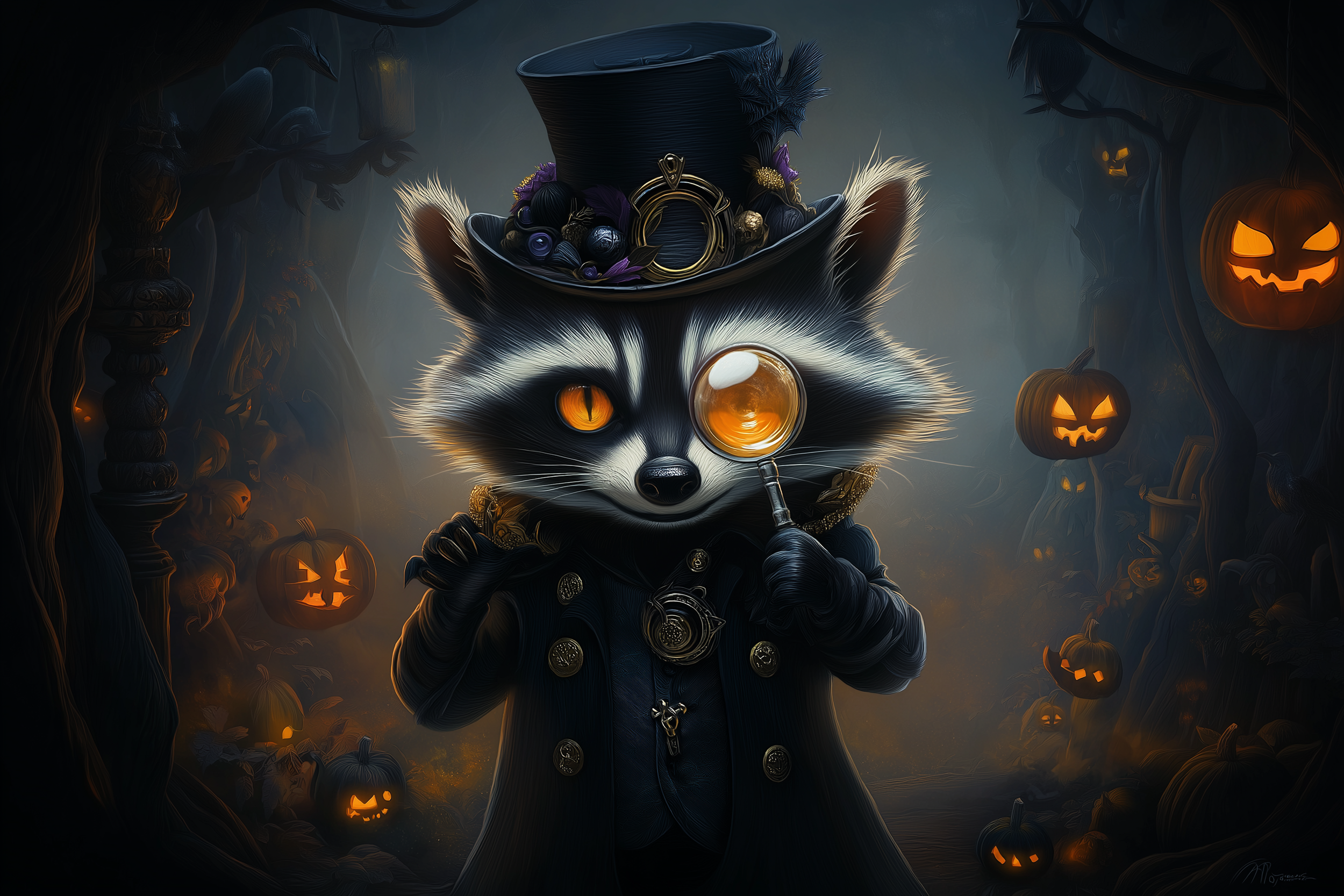Exploring the Etymology of "Weird": From Fate to the Fantastical
Exploring the Etymology of "Weird": From Fate to the Fantastical
Why has the word “weird” ever had a negative connotation? It’s wonderful! At least, that’s what CacklePatch thinks.
The word “weird” has a fascinating history that stretches back centuries, evolving from mystical forces to things that are definitely a bit out of the ordinary. Today, “weird” describes anything strange, unusual, or offbeat—traits our beloved CacklePatch proudly embodies.
But how did “weird” go from describing fate to fitting CacklePatch’s charmingly mischievous spirit so well? Let’s take a look at the winding journey of this wonderful word.
Origins in Old English: The Power of Fate
Our story begins in Old English, with the word wyrd (pronounced almost the same), which referred to fate or destiny. Derived from the Proto-Germanic root wurđiz, meaning “to become” or “to turn,” wyrd was about unseen forces shaping the course of our lives. Quite mysterious! For the Anglo-Saxons, fate was as much about the unknown as it was powerful—an unchangeable force guiding everything toward its inevitable outcome.
It may have been CacklePatch’s wyrd to stumble upon Astari’s discarded potion that fateful night!
The Wyrd Sisters: Shakespeare and the Supernatural
The word “weird” took on a more current connotation in the 16th century, thanks to playwright William Shakespeare. In Macbeth, the “Weird Sisters”—three eerie witches—foretell Macbeth’s tragic future. Shakespeare’s use of “weird” to describe these supernatural figures linked the word to mystical and magical forces, pushing it closer to its modern sense. Shakespeare tapped into the ancient idea of fate but added a dash of the uncanny, making “weird” otherworldly and a bit unsettling.
It’s easy to imagine CacklePatch chuckling at the thought of the Weird Sisters. He might even fancy himself as a raccoon counterpart to these fate-spinners, playfully bestowing “trick and treats” upon those who cross his path, leaving them with the sense that their lives, like Macbeth’s, are somehow being nudged by the unseen paw of destiny.
From Fate to Strange: Weird in the 19th Century
In the 19th century, the meaning of “weird” shifted once more. It parted ways with the idea of destiny and began to refer to anything eerie or just plain strange. This was the era of Gothic literature, with its haunted castles, gloomy landscapes, and things that went bump in the night. “Weird” became shorthand for the unsettling and inexplicable, conjuring images of shadowy figures and strange, moonlit happenings.
If CacklePatch had been around during this time, he would likely have been at home among the Gothic ghosts and creeping shadows, dashing through misty forests and appearing in odd places just long enough to spark curiosity. His bright, pumpkin-orange eyes would have fit right in, peering out from under his enchanted top hat, as he delighted in the mysterious atmosphere that “weird” now evoked.
Weird in Modern English: From Peculiar to Playful
In today’s world, “weird” has shed its eerie edges and become more of a playful term that covers a range of meanings—from mildly odd to delightfully bizarre. The word is no longer about fate or magic, but describes anything outside the norm. “Weird” is now embraced with a wink and a smile, and, as far as CacklePatch is concerned, is often used as a badge of honor for those who celebrate their quirks.
This modern interpretation of “weird” is where CacklePatch truly shines. He’s not just weird; he’s delightfully weird—a creature who embodies all the fun, creativity, and mischievous joy that makes Halloween itself so enchanting. With his collection of odd trinkets, his dramatic coat, and his habit of popping up in unexpected places, CacklePatch is weird in the best possible way, and he wouldn’t have it any other way.
The Cultural Embrace of Weirdness: A Word for the Individualist
Today, “weird” has come full circle, becoming a celebration of individuality and uniqueness. To be “weird” is to proudly showcase one’s quirks and oddities, to embrace life with a sense of wonder and humor. It’s a word that resonates with those who don’t just follow the crowd but blaze their own, slightly twisted path.
And who better to embody this spirit than CacklePatch himself? With his penchant for shiny objects, his magical tricks, and his unwavering commitment to the strange, CacklePatch stands as a true champion of “weirdness.” He reminds us all to lean into our quirks, to take pride in what makes us different, and to never underestimate the magic of a well-timed “keh keh keh” laugh.
So, the next time you hear something described as “weird,” remember: it’s a word with ancient roots and modern charm, a word that captures the magic of being different. And who knows? If you embrace your own weirdness, you might just find CacklePatch leaving a “trick and treat” for you, too.
